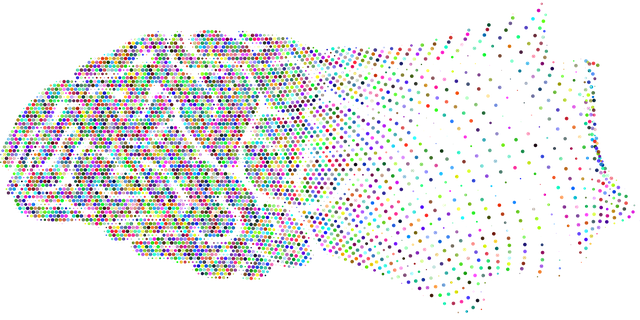Englewood communities face significant challenges due to post-traumatic stress disorder (PTSD), exacerbated by historical trauma and economic disparities. Specialized therapy approaches, such as CBT and EMDR, along with building emotional intelligence, offer effective solutions. Cultural sensitivity and risk assessment are crucial for mental health professionals treating PTSD in diverse populations like Englewood. Tailored stress reduction methods, community outreach, and self-care practices foster trust and engagement, empowering individuals to recover and reclaim their lives through holistic PTSD therapy programs.
In Englewood communities, addressing post-traumatic stress disorder (PTSD) is a critical step towards community healing. This article explores the multifaceted approach to providing effective Englewood Post-Traumatic Stress Disorder therapy by delving into understanding PTSD, the power of therapy, building accessible and culturally responsive support services, and celebrating success stories from local programs. By focusing on these key aspects, the goal is to empower individuals affected by trauma and foster a more resilient community.
- Understanding Post-Traumatic Stress Disorder (PTSD) in Englewood Communities
- The Role of Therapy in Effective PTSD Treatment
- Building Accessible and Culturaly Responsive Support Services
- Empowering Individuals: Success Stories from Englewood's PTSD Therapy Programs
Understanding Post-Traumatic Stress Disorder (PTSD) in Englewood Communities

In Englewood communities, post-traumatic stress disorder (PTSD) is a significant concern that requires tailored support and understanding. PTSD often develops after individuals experience or witness traumatic events, leading to intense and distressing symptoms such as flashbacks, nightmares, avoidance behaviors, and heightened anxiety. Given the complex social fabric of these communities, it’s crucial to recognize how systemic issues like historical trauma, economic disparities, and social injustices can contribute to the development and persistence of PTSD.
Addressing PTSD in Englewood requires an integrated approach that combines evidence-based therapies with initiatives focused on emotional intelligence and mental health awareness. Emotional well-being promotion techniques, such as cognitive-behavioral therapy (CBT) and eye movement desensitization and reprocessing (EMDR), have proven effective in helping individuals process traumatic memories and reduce symptoms. By fostering a supportive environment that prioritizes open dialogue and encourages the sharing of experiences, communities can play a vital role in the healing process, empowering residents to build resilience and navigate their emotional responses more effectively.
The Role of Therapy in Effective PTSD Treatment

Englewood Post-Traumatic Stress Disorder (PTSD) therapy plays a pivotal role in effective treatment and recovery from this debilitating condition. Through various therapeutic approaches, individuals can learn to process and manage traumatic memories, emotions, and behaviors. Cognitive Behavioral Therapy (CBT), for instance, equips patients with coping strategies to challenge negative thought patterns and engage in healthier behaviors. Eye Movement Desensitization and Reprocessing (EMDR) therapy is another effective method that facilitates the rewriting of traumatic memories, reducing their intensity and impact over time.
Cultural sensitivity in mental healthcare practice is essential, as PTSD can manifest differently across various cultural groups due to unique societal norms and experiences. Mental wellness coaching programs development should incorporate these nuances to ensure tailored support for diverse populations. Moreover, risk assessment for mental health professionals is crucial, as working with trauma survivors can be emotionally taxing. Adequate training in self-care practices and supervision helps professionals maintain resilience and provide consistent care.
Building Accessible and Culturaly Responsive Support Services

In building accessible and culturally responsive trauma support services, it’s essential to recognize the diverse needs of communities, especially those in areas like Englewood, where post-traumatic stress disorder (PTSD) is prevalent. Effective strategies involve incorporating Stress Reduction Methods tailored to various cultural contexts, ensuring these practices are inclusive and sensitive to community dynamics. By integrating traditional healing practices alongside evidence-based therapies, services can become more culturally aligned, fostering trust and engagement among individuals from diverse backgrounds.
Community outreach plays a pivotal role in this process. Implementing well-structured Self-Care Practices and Community Outreach Program Implementation allows for direct interaction with residents, addressing trauma in a holistic manner. These initiatives should be designed to empower individuals, offering not just immediate relief but also long-term coping strategies that resonate within their cultural framework. Such an approach not only enhances accessibility but also promotes sustainable recovery for those affected by trauma.
Empowering Individuals: Success Stories from Englewood's PTSD Therapy Programs

Englewood’s PTSD therapy programs have been a beacon of hope for countless individuals grappling with post-traumatic stress disorder (PTSD). These innovative initiatives focus on empowering people through personalized treatment plans, cognitive behavioral therapy, and group support sessions. Success stories abound, highlighting individuals who once struggled with feelings of isolation and despair, now leading fulfilling lives and rebuilding their resilience.
Through these programs, participants learn effective coping mechanisms, develop a robust self-care routine for better mental health, and cultivate skills to prevent burnout—all crucial aspects of their journey towards recovery. The dedicated healthcare providers at Englewood seamlessly integrate cultural competency training into the fabric of care, ensuring every patient feels understood and supported, regardless of their background. This holistic approach has proven instrumental in fostering profound transformations and encouraging individuals to reclaim their lives.
Englewood communities have made significant strides in addressing Post-Traumatic Stress Disorder (PTSD) through accessible and culturally responsive therapy programs. By understanding the unique challenges faced by individuals with PTSD, implementing tailored support services, and sharing success stories, these initiatives empower residents to overcome trauma. Further investment in Englewood’s PTSD therapy programs is crucial to ensuring long-term healing and enhancing the well-being of its diverse population. Accessible and culturally sensitive care remains key to effective treatment for those dealing with PTSD in this vibrant community.












